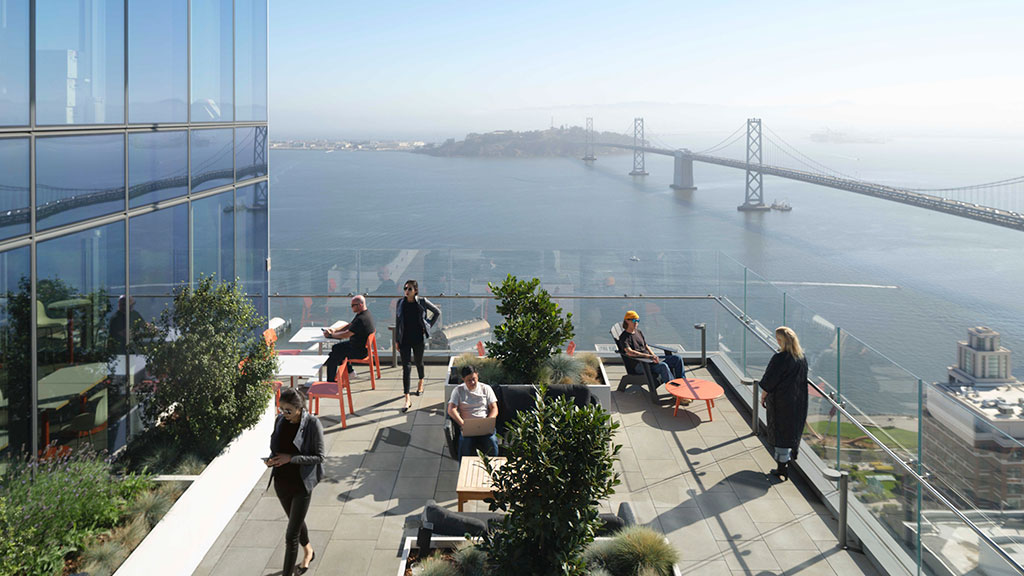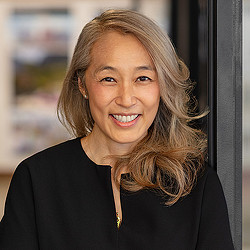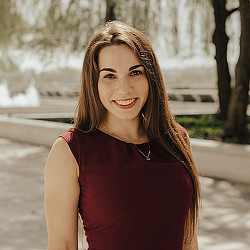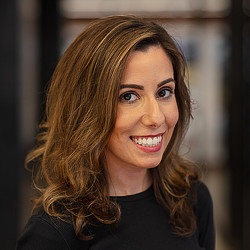San Francisco Is on the Brink of a Revival, Fueled by AI, Innovators, and Investors
June 18, 2024 | By Sofia Song, Stella Donovan, and Jacqueline Scherr
Gensler’s latest cities research, “The Return of the City: A 2024 Retrospective of the City Pulse,” presents a closer look at six different cities around the world: Austin, London, Mexico City, New York, San Francisco, and Singapore. We pulled these cities from the headlines to learn deeper lessons about how they navigated the public health crisis and understand what the future may hold. This blog explores San Francisco, one of the original four cities profiled in Gensler’s City Pulse study.
San Francisco’s rapid decline was headline news in 2021. Critics harped on the doom loop describing the cycle of challenges — from street crime to remote work — that would leave the city in despair. Negative media coverage took an enormous toll on the city’s reputation: just 52% of Americans polled by Gallup in 2022 viewed San Francisco as a safe place to live, plunging 18 percentage points from its heyday in 2006. However, the city proved resilient. The rise of artificial intelligence provided a needed boost, with startups that focus on AI leasing more and more office space. Additionally, venture funding to San Francisco–based startups bounced back to two-thirds of its peak in 2023.
“This has always been a place of opportunity,” said Katie Buchanan, co-managing director of Gensler San Francisco. “There’s a mindset that you can redefine yourself here that is very much part of our culture.”
Contrary to reports of the city’s demise, more people are feeling satisfied with their living conditions in San Francisco.
In spite of the headlines bemoaning the “failed city,” 72% of people in San Francisco are satisfied with their current living situation — a 7% increase since 2021. A slightly higher percentage of people (80% in 2023 vs. 78% in 2021) believe the city provides a great experience. Our survey found San Francisco residents feel better about their quality of life. Fewer people think the city is too noisy (37% in 2023 vs. 46% in 2021) or that it is losing its cultural heritage (41% in 2023 vs. 49% in 2021). And a larger percentage of people agree that San Francisco has clean air (68% in 2023 vs. 57% in 2021).
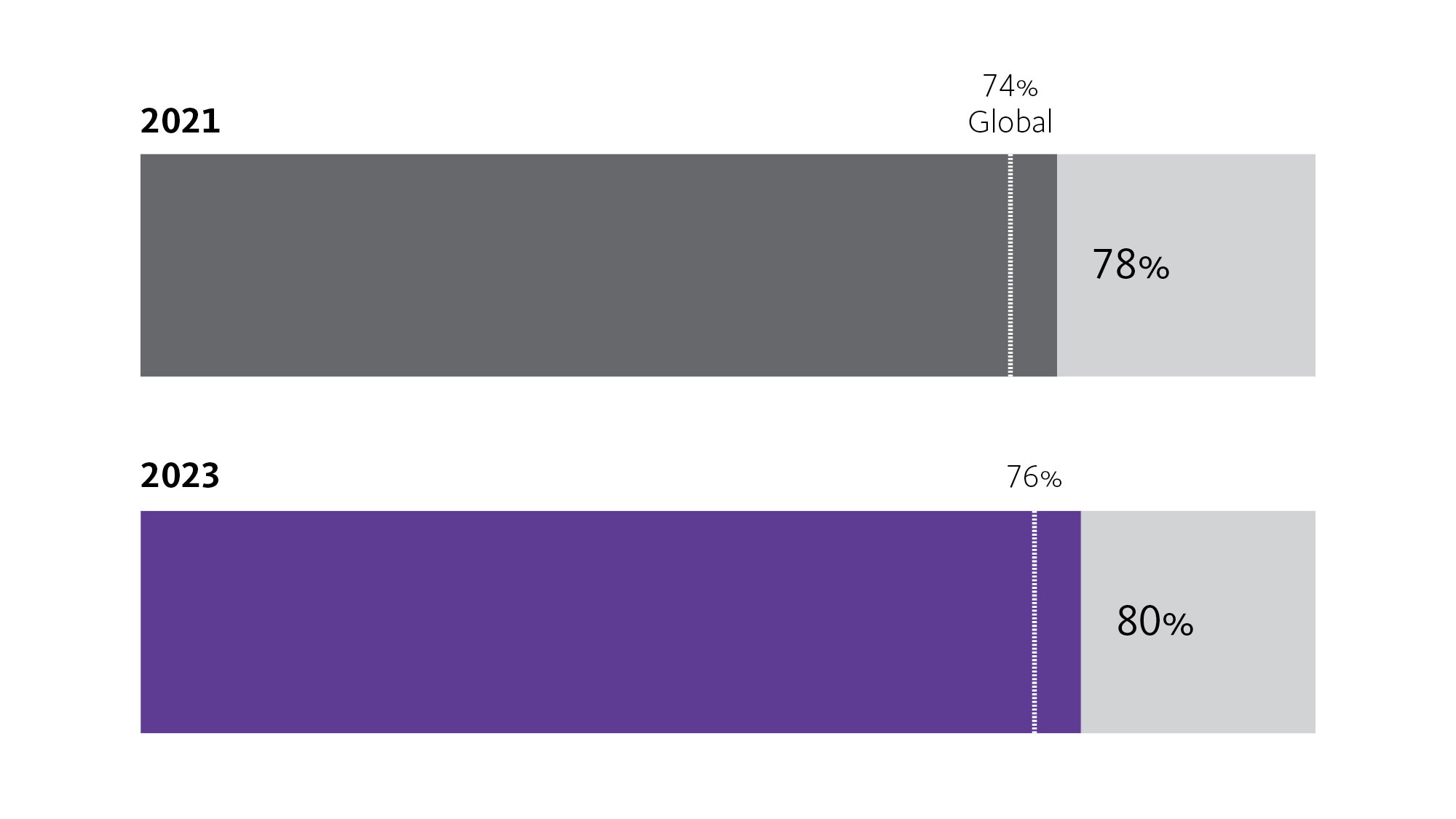
More people believe that employment opportunities have improved, and that prospects for career advancement are better.
In 2023, nearly half of respondents (48%) said they believe their career advancement has gotten better — up 23% since 2021. Similarly, 47% feel that employment opportunities in San Francisco have gotten better, compared to 34% in 2021. When asked about the flexibility provided by remote work, 46% of people say it has made them think about moving out of the city (compared to 56% in 2021) or to a different part of the city (compared to 51% in 2021). A healthy 73% of respondents are satisfied with their city as a place to work.
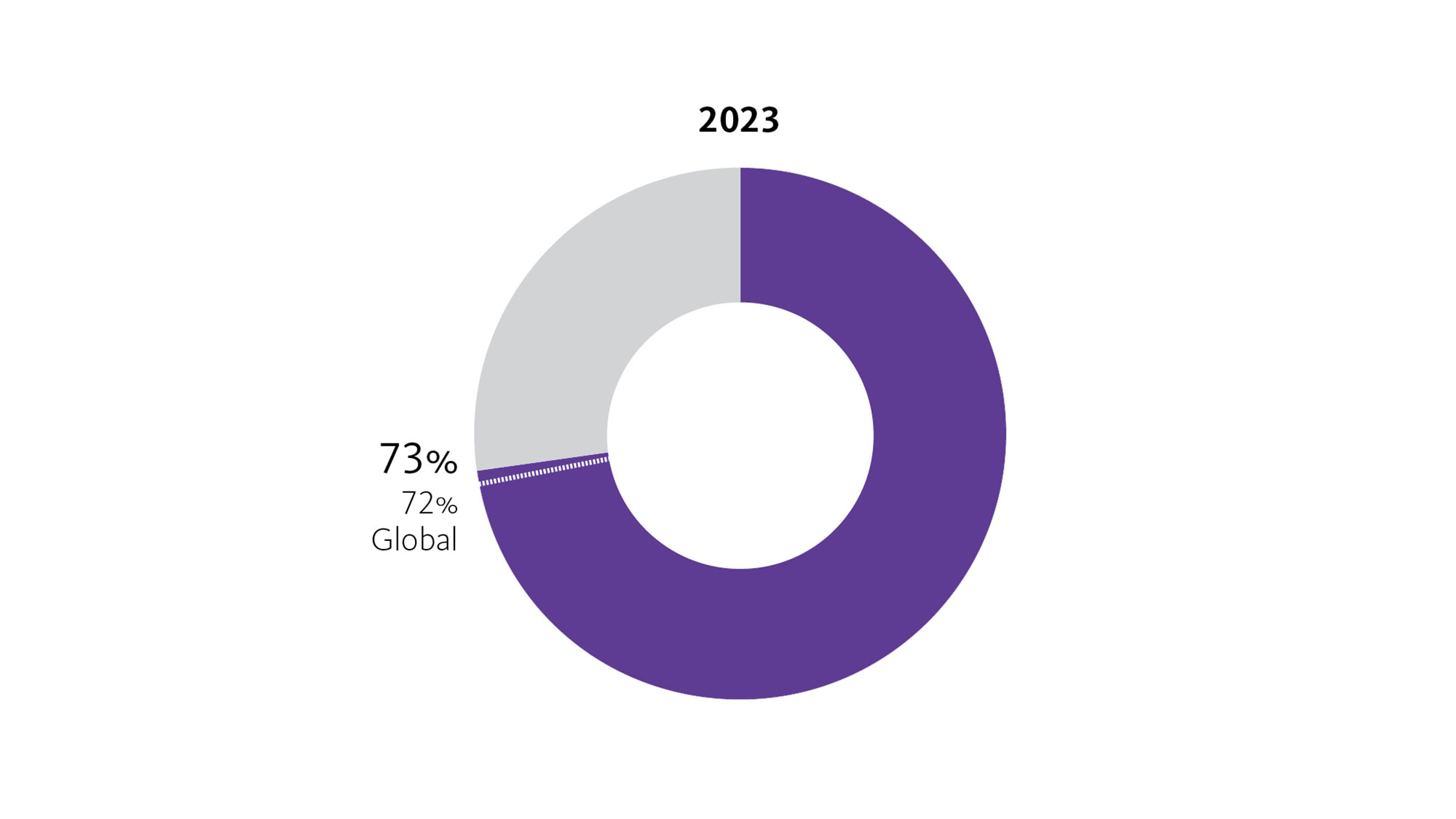
Half of San Francisco residents are living paycheck to paycheck.
About half (50%) of San Francisco residents say that they’re living paycheck to paycheck, a 12% increase from 2021 and slightly higher than the global average of 45%. Additionally, 63% of San Francisco respondents feel that living in their neighborhood is not as affordable as it was a year ago (up from 59% in 2021).
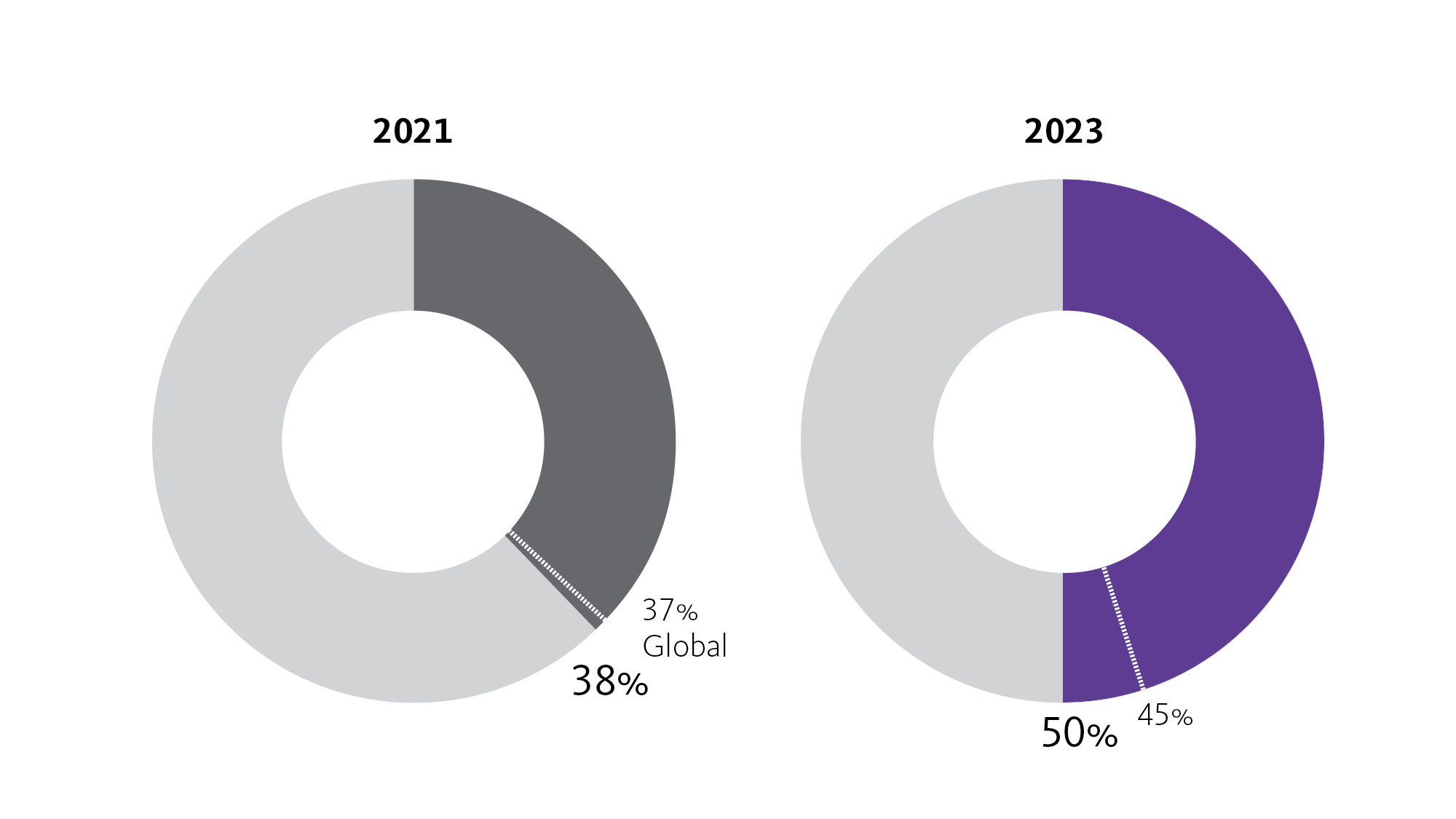
A greater percentage of San Franciscans now feel the Financial District provides a great experience.
Enthusiasm for the city’s Financial District is gaining ground: 70% of San Franciscans feel that the Financial District provides a great experience (up 8% from 2021). Adding more green space (34%), reducing traffic congestion (33%), and improving streetscapes (31%) are the top physical improvements residents want to see.
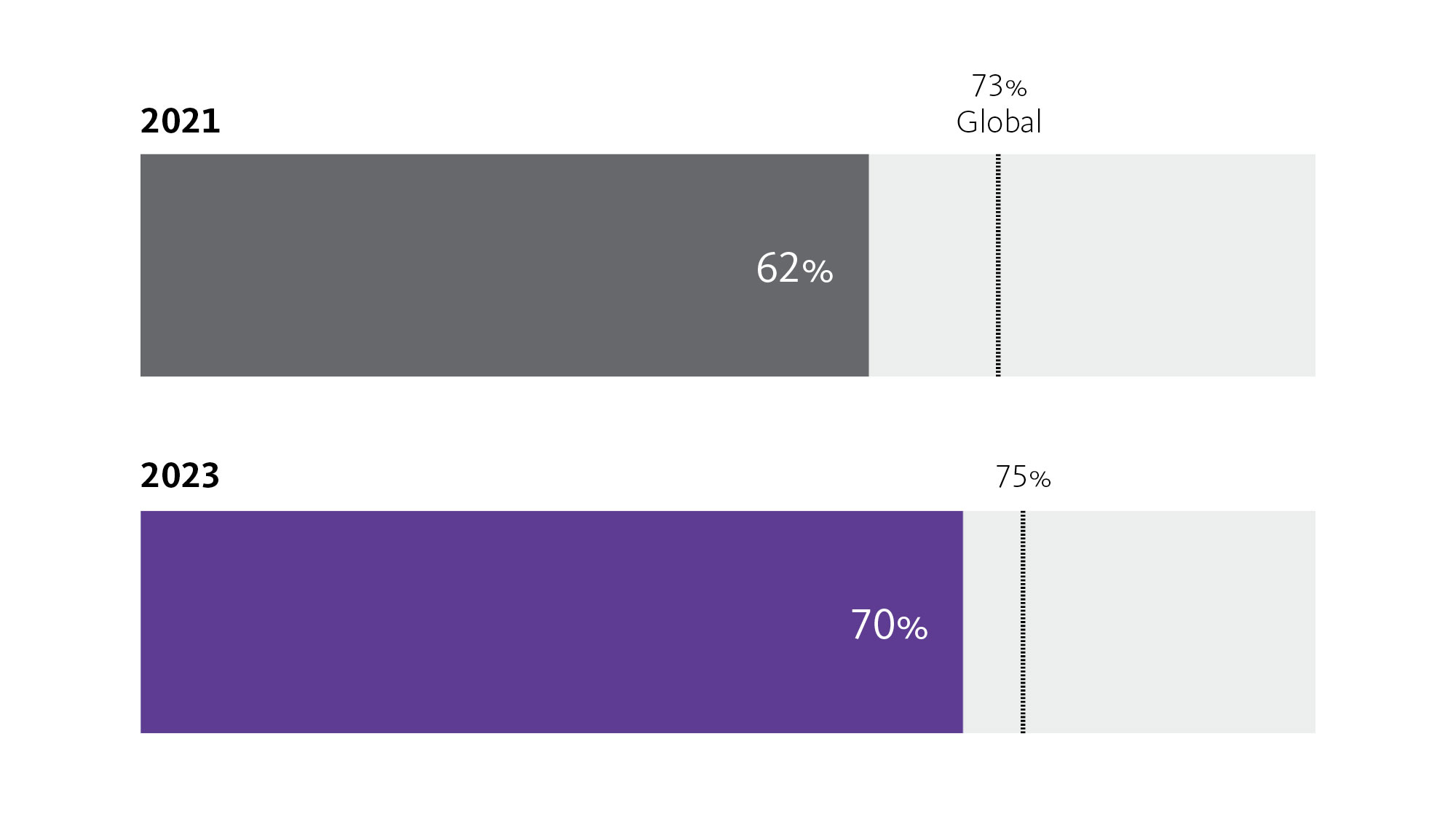
San Francisco’s redefinition just might be the economic transformation spawned by artificial intelligence.
According to The Economist, San Francisco has no serious rival in AI, which pundits predict will power a global surge in productivity. The city accounted for nearly one-tenth of 2023 AI job postings in the U.S., more than anywhere else, said the Brookings Metro think tank. OpenAI, the creator of ChatGPT, subleased nearly 500,000 square feet from Uber’s headquarters in Mission Bay — San Francisco’s biggest office lease deal since 2018. This move brings new hope that tech workers will reinvigorate the city’s downtown and economy.
“That feeling is in the air again that was here in 2011 and in the mid-90s, where it felt like all these founders and entrepreneurs were onto something,” said Ben Tranel, co-managing director of Gensler San Francisco. “There’s a renewed sense that we’re on the cusp of the next big thing here.”
For media inquiries, email .
